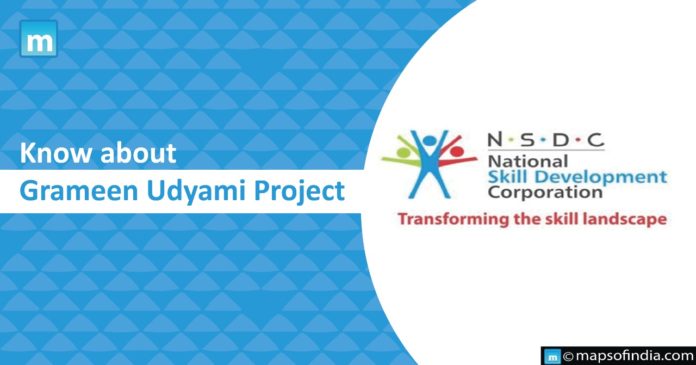The National Skill Development Corporation (NSDC), in collaboration with Seva Bharti and Yuva Vikas Society (SBYVS), launched the second phase of the Gramin Udyami project on August 20. The primary purposes of the project are to increase the rural economy, enhance employment opportunities in rural areas, reduce migration due to lack of facilities, and conserve natural resources. The organization provides financial support to develop an initiative for vocational training.
What is the National Skill Development Corporation (NSDC)?
Established on July 31, 2008, under Section 25 of the Companies Act 1956, the National Skill Development Corporation (NSDC) is a non-profit public limited company. The Ministry of Finance established the National Skill Development Corporation (NSDC) on the public-private partnership (PPP) model.
Through the Ministry of Skill Development and Entrepreneurship, the Government of India acquires a 49% share of the National Skill Development Corporation (NSDC). The private sector owns the remaining 51% of the claim. The project emphasized the involvement of the tribal communities to make them self-reliant and independent.
What is the Grameen Udyami project?
The Grameen Udyami project is one of its unique kinds of projects funded by the National Skill Development Corporation (NSDC). The project’s main objective is to train 450 tribal students in Madhya Pradesh and Jharkhand. Along with these, the project is also being implemented in six other states, Maharashtra, Rajasthan, Chhattisgarh, Madhya Pradesh, Jharkhand, and Gujarat.
The training will be held for the following job positions:
- Two-wheeler repair and maintenance, plumbing and masonry
- Farm mechanization
- An electrician and solar PV installation technician
- IT/ ITES with e-governance
How will the Grameen Udyami project work?
The welfare programme is divided into two phases.
Phase 1
Phase 1 is mobilized from rural and tribal areas of five states, namely, Maharashtra, Rajasthan, Chhattisgarh, Madhya Pradesh, and Gujarat. All the additional facilities, like transportation, boarding, and lodging, will be provided to the candidates, so they do not miss any learning opportunities due to the lack of facilities.
Phase 2
Phase 2 of the project was launched in Ranchi, Jharkhand. The Yuva Vikas Society (YVS) will implement the project through the Seva Bharti Kendra (SBK) in Ranchi, Jharkhand. Through the support of the National Skill Development Corporation (NSDC), many labs and classrooms will be set up. The classrooms and labs will be set up with the help of Sector Skills Councils (SSCs) in Seva Bharti Kendra Skill Development Center.
Other Government of India’s initiatives for skill development
- Pre-Departure Orientation Training (PDOT)
- Higher Education and School Initiative
- India’s International skill centres (IISCs)
- Capacity Building Scheme
- PMKK (Pradhan Mantri Kaushal Kendra)
- Rojgar Mela
- PMKVY (Pradhanmantri Kaushal Vikas Yojana)
Challenges:
- Area of implementation
The major challenge of the project is its proper implementation. Government officials have to make sure that the facilities reach the people of the tribal areas.
- The existence of a middleman
There is a loophole in the project. The presence of a middleman between the project and the tribal people will be the drawback of the project. There will not be any transparency in the implementation of the project.




